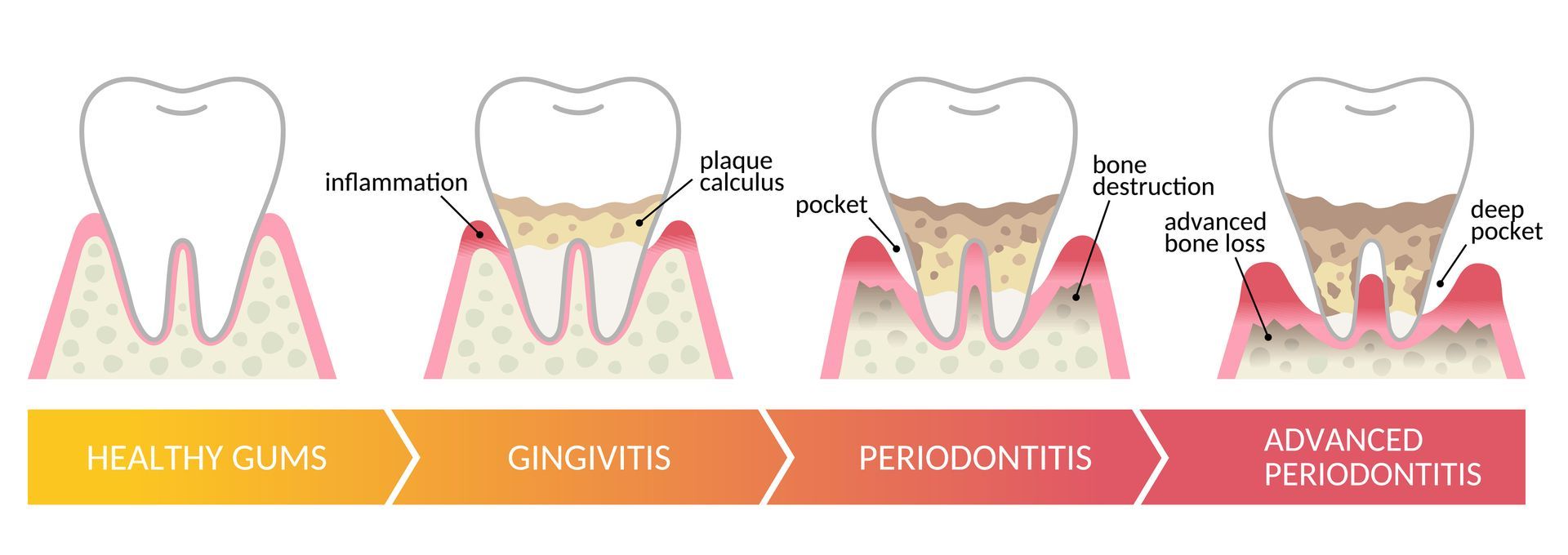Gum disease, also called periodontal disease, affects the tissues that support your teeth—mainly the gums and jawbone. It can range from mild inflammation, known as gingivitis, to more serious conditions like periodontitis, which can lead to tooth loss.
What Causes Gum Disease?
The main cause is plaque, a sticky film of bacteria that builds up on teeth. When plaque isn't removed through regular brushing and flossing, it can irritate the gums and cause inflammation. If untreated, gingivitis can progress toperiodontitis, where the infection spreads deeper. Over time, this can damage the bone and tissue holding your teeth in place. As the bone weakens, spaces (or "pockets") may form between the teeth and gums, trapping more plaque and worsening the problem. Eventually, teeth may become loose or even fall out.
Signs & Symptoms
- Bleeding gums during brushing or flossing
- Persistent bad breath
- Swollen, tender, or receding gums
- Loose or shifting teeth
- Pus between teeth and gums
If you notice any of these symptoms, it’s important to seek treatment promptly.
Risk Factors
While plaque is the primary cause, several factors can increase your risk of gum disease:
- Smoking or tobacco use
- Health conditions like diabetes
- Family history of gum disease
- Certain medications
- Stress
- Clenching and grinding teeth
Periodontal Assessment
When you're referred to us, the first step is a full review of your dental and medical history, including any medications you’re taking. This helps us to identify any contributing risk factors or health concerns.
The specialist will then perform a detailed oral exam, checking your gums, measuring pocket depths around each tooth, and assessing tooth movement or gum recession. X-rays may also be taken to evaluate bone levels around the teeth.
Personalized Treatment Plan
Based on your exam, our periodontist at Perio Health Specialists will develop a customised treatment plan tailored to your needs. This may include deep cleaning (scaling and root debridement), antibiotics, or surgical options in more advanced cases. Your treatment will be explained in detail, along with recommendations for ongoing care and maintenance.


